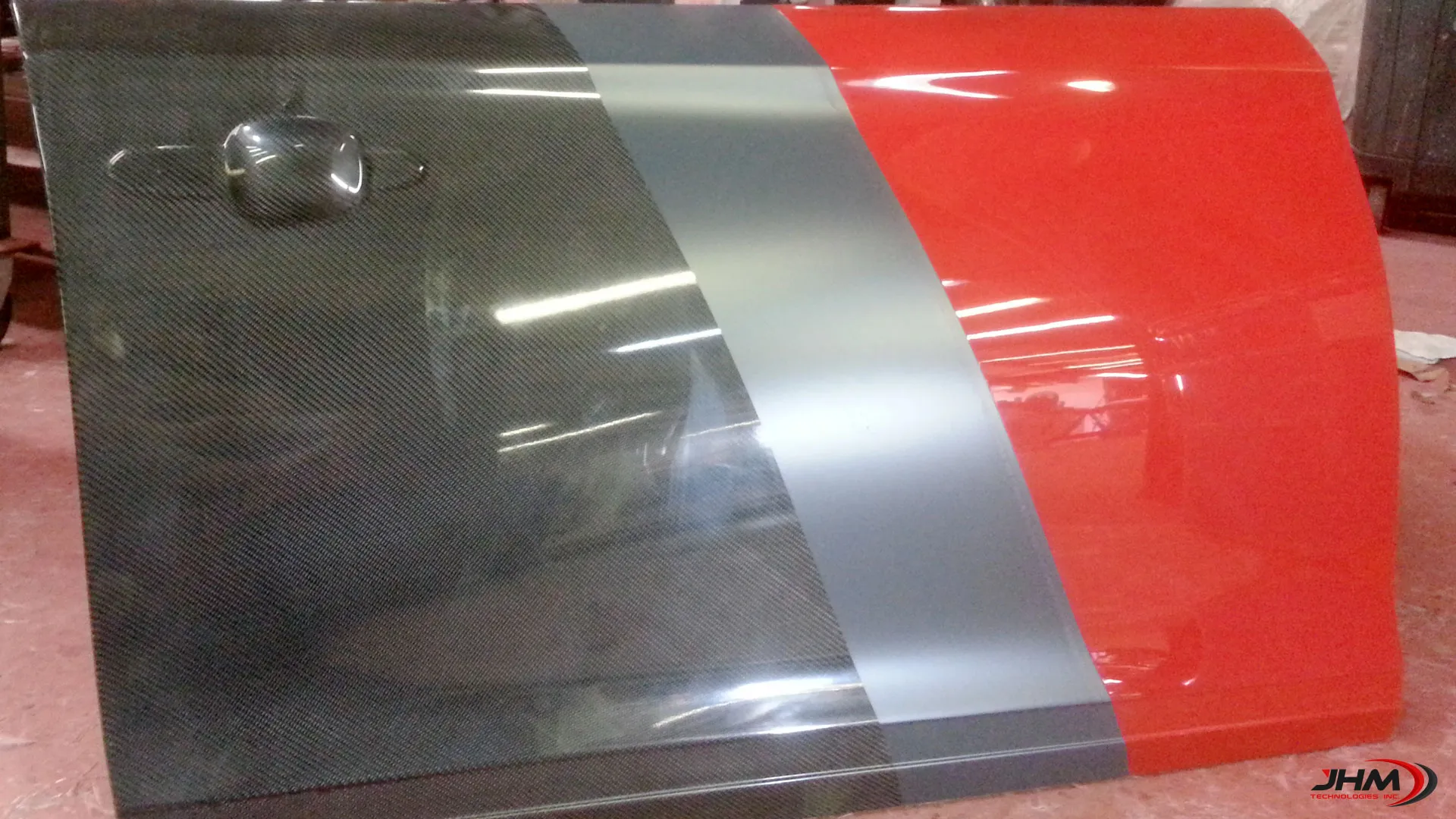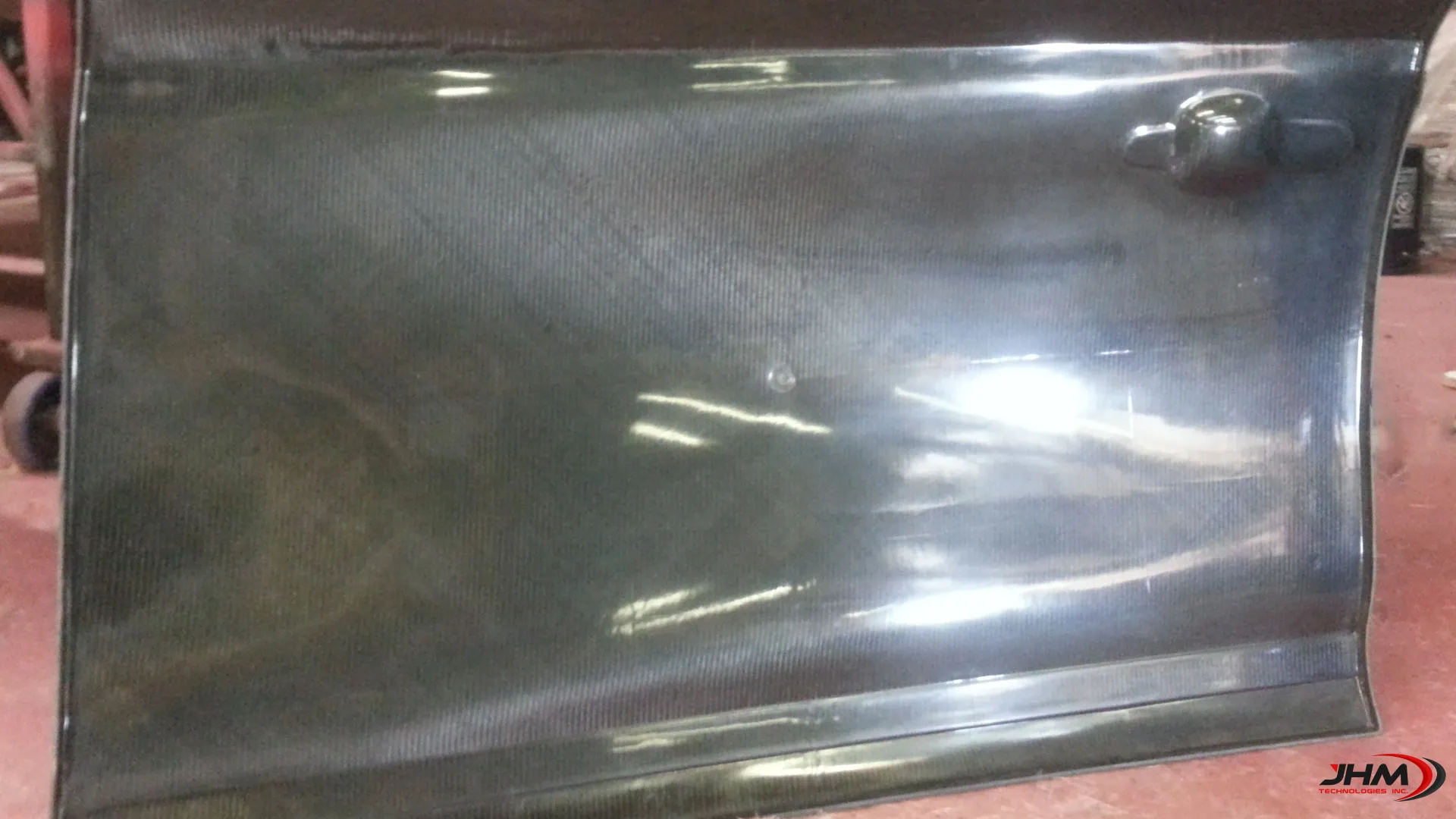Weight to strength ratio along with its aesthetic appearance has always made carbon fiber an attractive material choice. However due to it’s excessive startup costs and molding complexities it has been out of reach for many. Molding carbon fiber reinforced composites (CFRP) has mostly been dedicated to the aerospace industry along with other low volume niche` applications. In recent years the automotive sector has joined in on molding CFRP with high-end steel tooling. While high-end steel tooling may prove to be an effective cost model for high volume applications, majority of the vehicles or applications that benefit from the advantages of carbon fiber are currently low volume niche` applications.
Molding CFRP is not new, however due to the lack of innovation it’s still dedicated for being used for low to moderate volume production. Typical methods being either prepreg with very high material and tooling cost — with at best 1 cycle per day in production – or vacuum infusion with similar production speeds but only one smooth finished side.
Requested Solution
We were challenged to create a package that provided low cost entry to CFRP molded class “A” surface panels.
The solution had to include low cost tooling, the ability to run in extended daily production, minimum of 1 part per 2 hours, and ultimately meet speeds of 15 minutes or less.
All while maintaining a surface quality as though it was molded in match metal tooling on both the “A” and “B” sides of the part.
Solution Provided
Leveraging our 30+ years of experience and using tooling design from the LRTM process in combination with elements from HP-RTM, we developed a packaged solution — far exceeding expectations —, which was used to produce the door skin example shown here. Included in the package was cost effective tooling and equipment, along with complete process training.
The example tool shown here is first part off of the mold without any process refinement! The door skin is shown with “as molded” carbon fiber “A” surface, primer, and finally top coated sections. It should be noted that there is no coating applied to the carbon fiber in the mold. The part contains 1448 grams of Momentive epoxy 035/038 resin system and 1730 grams of carbon fiber. Resulting in fiber volume fractions of 48% and a nominal part thickness of 2mm. Total weight of the door skin is 7 pounds, which far lighter than any comparable steel door outer — averaging 14.38 pounds.
Using the developed package along with the included Infuser Servo® injection system, a precise automated injection of 1448 grams of resin was injected into the mold in less than 90 seconds. The tooling used to create the example part is a “soft” FRP mold set (LRTM) with replaceable “A” cavity side mold surface, allowing for the “A” mold to be replaced at an affordable cost of $710. Complete startup cost for tooling came to $16,729.

As Molded “A” Side

As Molded “B” Side
This part and more will be at our booth #3648 during CAMX 2014 in Orlando, Florida!
